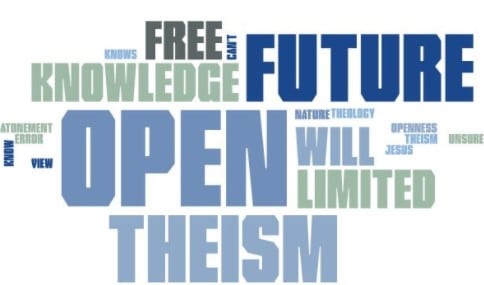C
Comingfrom
Guest
Right at the end of the Bible, we are told (reminded) to not seal God's sayings in the Bible.What is Open Theism?
by Matt Slick | Dec 9, 2008 | Minor Groups & Issues, Open Theism
Open Theism, also called openness and the open view, is a theological position dealing with human free will and its relationship to God and the nature of the future. It is the teaching that God has granted to humanity free will and that in order for the free will to be truly free, the future free will choices of individuals cannot be known ahead of time by God. They hold that if God knows what we are going to choose, then how can we be truly free when it is time to make those choices – since a counter choice cannot then be made by us, because it is already “known” what we are going to do. In other words, we would not actually be able to make a contrary choice to what God “knows” we will choose thus implying that we would not then be free.
In Open Theism, the future is either knowable or not knowable. For the open theists who hold that the future is knowable by God, they maintain that God voluntarily limits His knowledge of free will choices so that they can remain truly free. Other open theists maintain that the future, being nonexistent, is not knowable, even by God. Gregory Boyd, a well-known advocate of Open Theism says,
But open theists would not say that God is weak or powerless. They say that God is capable of predicting and ordaining certain future events because He is capable of working in the world and bringing certain events to pass when the time is needed. Therefore, God could inspire the Old Testament writers to prophesy certain events, and then He could simply ensure that those events occurred at the right time.
Furthermore, open theists claim that they do not deny the omniscience of God. They, like classical theologians, state that God is indeed all-knowing. But they differ in that God can only know that which is knowable and since the future has not yet happened, it can not be exhaustively known by God. Instead, God only knows the present exhaustively, including the inclinations, desires, thoughts, and hopes of all people.
In Open Theism God can make mistakes because He does not know all things that will occur in the future. According to them, God also takes risks and adapts to the free-will choices of people. They claim biblical support for their position by citing scripture where God changes His mind (Exodus 32:14), is surprised (Isaiah 5:3–7), and tests people to see what they will do (Genesis 22:12).
Finally, Open Theism tends to portray the God of orthodoxy as distant, controlling, and unyielding while promoting the God of openness as involved, adapting, loving, interacting, and caring for humanity.
Orthodox Christianity
Historic Orthodox Christianity states that God knows all things, even the entirety of the future, exhaustively. 1 John 3:20 says, “…for God is greater than our heart, and knows all things.” Likewise, Peter said to Jesus in John 21:17, “…You know all things; You know that I love You…” God’s sovereignty is clearly taught in scripture, and His sovereignty is tied to His omniscience. Orthodox Christianity teaches that God is very loving, very involved, and even condescends to our level and interacts with us in a manner that we can understand. This means that we will see what appears to be instances of God changing His mind, testing, and adapting. But, this is all due to God’s working with creatures who have limited vision, short life spans, and are sinners. God must work on our level since we cannot work on His.
God and time
The question about God’s knowledge of the future is very important because it deals with the actual definition of God’s nature in relation to the nature of the future. Is God all-knowing about the future or not? Is God existing in the future or not? Is God limited to the present or not? The answers to these questions reflect the very nature and scope of God’s existence. The open theists are pushing a description of God that reduces God from knowing all things, past, present, and future, to not knowing all things in the future. God’s omnipresence is also in jeopardy in Open Theism, since some open theists deny the existence of the future and thereby deny the omnipresence of God in the future.
Conclusion
My opinion is that openness is a dangerous teaching that undermines the sovereignty, majesty, infinitude, knowledge, existence, and glory of God and exalts the nature and condition of man’s own free will. Though the open theists will undoubtedly say it does no such thing, it goes without saying that the God of Open Theism is not as knowledgeable or as ever-present as the God of orthodoxy.
And He saith unto me, Seal not the sayings of the prophecy of this book: for the time is at hand.
Revelation 22: 10
And I just read and was pondering on the meaning of this verse in Jeremiah;
Thus saith the Lord;
If heaven above can be measured, and the foundations of the earth searched out beneath,
I will also cast off all the seed of Israel for all that they have done, saith the Lord.
Jeremiah 31:37
It is my opinion that believing you know is the "dangerous" thing, that produce the "forbidden" fruit.
And that we should open to Him.
And ye yourselves like unto men that wait for their lord, when he will return from the wedding;
that when he cometh and knocketh, they may open unto him immediately.
Luke 12:36

